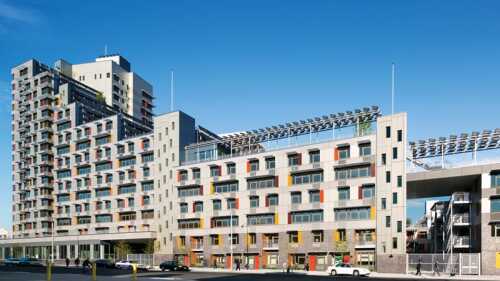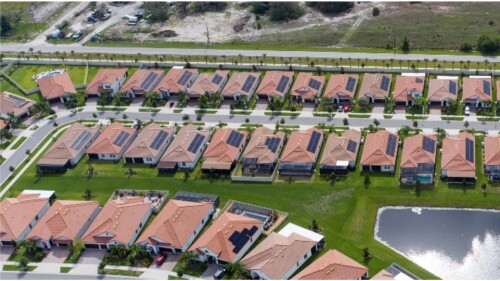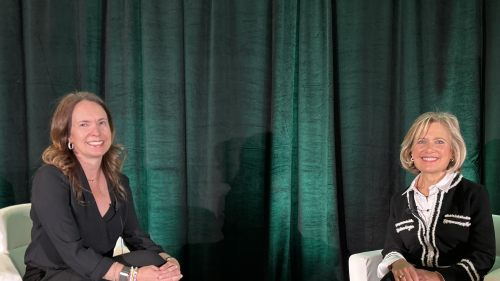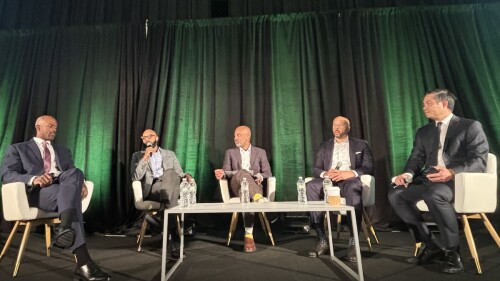HONG KONG—With the roar of the Route 2 highway overhead, facing Kwun Tong’s mix of dilapidated godowns (warehouses) and the steel-and-glass office towers that are replacing them, a segment of industrial-size sewage pipe stands on a yellow pedestal.
In other parts of the world, it might be the kind of temporary refuge from the elements that a homeless person would seek—somewhere to bed down for the night and then move on. In Hong Kong, however, it is a deliberate home, one effort to solve a wretched problem.
This is a city where many of the residents cannot afford to live. In a divided society, the rich own real estate and the rest do not. Homeownership is a mirage for many Hongkongers, one that is impossible for new university graduates to ever reach. The situation is so hopeless that one-third of the rental class is considering leaving the city entirely, according to the REA Group’s 2018 H1 Hong Kong Real Estate Market Outlook survey.
So here sits this pipe. It is an O-Pod Tube House, in the eyes of the avant-garde design firm James Law Cybertecture, which has built it as a thought piece. Each pod is a nine-square-metre (100 sq ft) studio flat, complete with a shower in the doorway, and a sink, minibar, and microwave serving as a kitchen.
Why anyone would want to live in a piece of construction infrastructure normally used to transport wastewater and sewage is a good question. But the pods are cheap and easy to move. Put a bunch of them together, build a nice clubhouse with plenty of hangout space, and perhaps young people who only want somewhere to bed down for the night would be happy.
The round pipes are not particularly conducive to stacking, which leaves dead space between them. But the conceptual project is being emulated by landlords who are beginning to introduce more-standard shared space in the city. It puzzles some longtime Hong Kong residents that there is not more of an outcry over the need for people to consider living in concrete pipes or the city’s notorious “cage homes,” which are little more than space for a bed and a few belongings.
“Personally, I am surprised that Hong Kong’s appalling housing policy has not led to riots in the streets,” says real estate investor Peter Churchouse, the former head of Asia research for Morgan Stanley. “There seems to be little to no inclination to change the system at all meaningfully.”
Hong Kong is by far the least affordable place on the planet when it comes to buying a home. That is according to the 2018 Housing Affordability Survey compiled by the data analysis group Demographia, based in St. Louis, Missouri. Such was the situation in the firm’s 2017 survey, and going back eight years in a row.
It now requires 19.4 times the typical Hong Kong annual salary to purchase a Hong Kong home, which inevitably means a boxy, tight, nondescript space in a high-rise tower. Homes have become commodities in Hong Kong, and trading in and out of the market has been a prime way of making money over the years.
Assuming, optimistically, that you set aside one-third of your income, it would take about 60 years to pay off the purchase price of a Hong Kong home. That Sydney, Australia, with housing prices that are 12.9 times income, is in second place but so far behind Hong Kong’s affordability ratio speaks volumes. Hong Kong’s affordability is the worst in the history of the Demographia rankings, high even by the city’s own standards: in 2002, before the global ranking began, the price-to-income ratio was a mild 4.6.
Several factors converge to drive up Hong Kong’s housing prices. It is a small and densely packed city; its interest rates are pegged to U.S. interest rates, and have remained artificially low at a time of ample liquidity; it has always been a very open market, and susceptible to inflows of “hot money” seeking a home; and, most recently, the city has attracted a large number of buyers from Mainland China seeking a safe place for their capital.
The city also is suffering the aftereffects of the government’s decision to stall land auctions in response to the long aftermath of its previous bubble, which burst when the Asian financial crisis hit in 1997. The government owns all land, which it releases on long leases, and shows no propensity to ease property prices.
As much as one-third of government revenue stems from what are referred to locally as land sales (but which are technically long-term leases) and the stamp duties on property transactions. That allows Hong Kong to keep income taxes low, at a maximal tax rate of 17 per cent. Since drip-feeding high-priced plots to the market is how the government funds its services, the system guarantees high property prices and is therefore a method of taxing the wealthy to provide for the poorer part of society. About half of Hong Kong residents live in cheap, shoddy, and small government rental housing.
After the Asian financial crisis, prices sank by almost 70 per cent, and only recovered in 2003. They have steadily risen more than 400 per cent since then. The government has done its best to prevent speculation in the market by imposing tough restrictions on quick sales, and that has succeeded. Tight rules on mortgage lending, though, have not dampened end-user demand. They have instead chilled the market, resulting in far fewer transactions and making it harder for first-time buyers to access properties in the resale market.
Now prices are dangerously high, in bubble territory, according to the investment bank UBS. Debt levels are “flashing red” in Hong Kong, across the economy, according to a recent report from the Bank for International Settlements. Hong Kong’s credit-to-GDP ratio also is a worry, a sign that is “reinforced by property-price developments,” the bank says.
The city’s equivalent of a central bank, the Hong Kong Monetary Authority, has long advised that housing valuations are “stretched” and that mortgage holders—already struggling to afford payments—face only mounting risks as both prices and interest rate payments rise. But those who had listened to the government before the unprecedented bull run in values would have missed out on those gains and now rue that mistake.
Everyone knows there is a problem; no one knows what to do about it. Ninety-five per cent of Hongkongers say they believe that current prices in the city are “excessively high,” according to a Nielsen survey commissioned by the Melbourne-based REA Group, which operates property-listing websites in ten nations, mainly in Asia. Yet 69 per cent believe that prices will continue to rise over the next half year, predicting an average rise of 9.8 per cent.
In the past, famously free-market Hong Kong was simply struggling to ensure that the influx of immigrants from Mainland China had a home. To some, that is still the role of the government, rather than nannying everyone into owning a home.
“You have to make that distinction of whether people are living in their home or investing in it,” says Michael Ma, executive director of the Urban Renewal Authority. “Previously, the public housing program was to provide people a safety net, rather than turning Hong Kong into a socialist state.”
But aspirations have changed. Of the Hongkongers who do not own property, 27 per cent are convinced that they will never be able to afford a home in Hong Kong during their lifetime. They are correct in that assumption based on the survey results, which show that at the median monthly salary of HK$17,200 (US$2,191) tracked by the government, it would take 30 years of that entire income to pay off a HK$6 million (US$765,000) property, the going rate for a one-bedroom apartment in the heart of the city.
This predicament “definitely deserves everyone’s attention,” not least on a social level, according to Nerida Conisbee, the chief economist at the REA Group. “In recent years, whether you own a property has become a significant criterion to determine whether you are an eligible, desirable spouse.”
One saving grace is that almost all Hongkongers have jobs, if they want them. The unemployment rate is running at just 2.9 per cent, its lowest level since the 1997 Asian financial crisis. But of the non-home-owning Hongkongers who remain, most figure that only tiny “nano flats” will allow them to get onto the property ladder.
Developers have catered to those desires by carving out ever-smaller apartments. Micro-flats have given way to nano-units, which, at about 14 square metres (150 sq ft), are no bigger than the typical Hong Kong parking space. The private flats fetch prices of HK$15,000 (US$1,920) per square foot, rates once reserved for luxury property.
More-practical solutions than concrete tubes also are springing up. The operators of Weave Co-Living have spent HK$667 million (US$85 million) to refurbish and convert a business hotel into 160 mini-apartments. Each rental unit of about 11 square metres (115 sq ft) has its own bathroom. But the development is designed for residents to spend much of their time outside their units, in 557 square metres (6,000 sq ft) of common areas, including a shared “semi-pantry” on each of the ten storeys, a residents-only floor, a rooftop lounge, a gym, and a restaurant.
Weave on Boundary, the first of what the company intends as many projects, is in the crowded Prince Edward neighbourhood, close to the MTR subway stop and therefore the rest of the centre of the city. The location was a “very deliberate choice,” Weave founder Sachin Doshi says. “Young people generally want to be in urban infill locations, which, by definition, means you’re not going to be have a house with a backyard.”
Doshi, who previously managed the Asia property portfolio for the Dutch pension fund manager APG Asset Management, says that Weave attempts to re-create elements of the home outside the four walls of an individual apartment. “Clearly, housing in Hong Kong is not affordable for young people,” he notes. “The model will need to be different.”
Millennials are looking for ways to enhance their lifestyle, Doshi says, and would rather spend money on travel and experiences than save it up to buy a place. “Sharing is deeply ingrained in this demographic,” he says. Weave intends to “curate” the tenant mix to ensure a vibrant community, as well as preventing it from becoming simply a cheaper alternative for families than typical apartments in the city.
“We want different people from different academic backgrounds, different career backgrounds, people who have grown up in different places and all call Hong Kong home,” Doshi explains. “It’s not just about filling up the property.”
It is true that property prices are still extremely expensive on the Upper East Side of Manhattan, in central London, and along the Sydney harbourfront. But those cities also have a much larger housing stock and more vibrant rental markets.
Also, average wages are considerably higher in those cities. In Hong Kong, “certain businesses can get away with low wages because they assume people are living in public housing,” says property consultant Margaret Brooke, chief executive officer of Professional Property Services, a Hong Kong–based property consulting company, advising companies on real estate and land use strategy. “They should be paying real wages, because some of our corporate profits are ridiculous.”
Even that system is challenged—there now is also a 4.7-year waitlist for government housing. More broadly, Brooke believes the government has never really made its policy clear whether its role is to provide public housing and accept that a large portion of the population will never own their home, or whether the government should encourage property purchases.
“A lot of this pressure has come because it has always been the prime way of Hong Kong’s creating wealth, and if you can’t get on that ladder you have missed out on this important part of life,” Brooke says. “I really do not know how we get out of it.”




